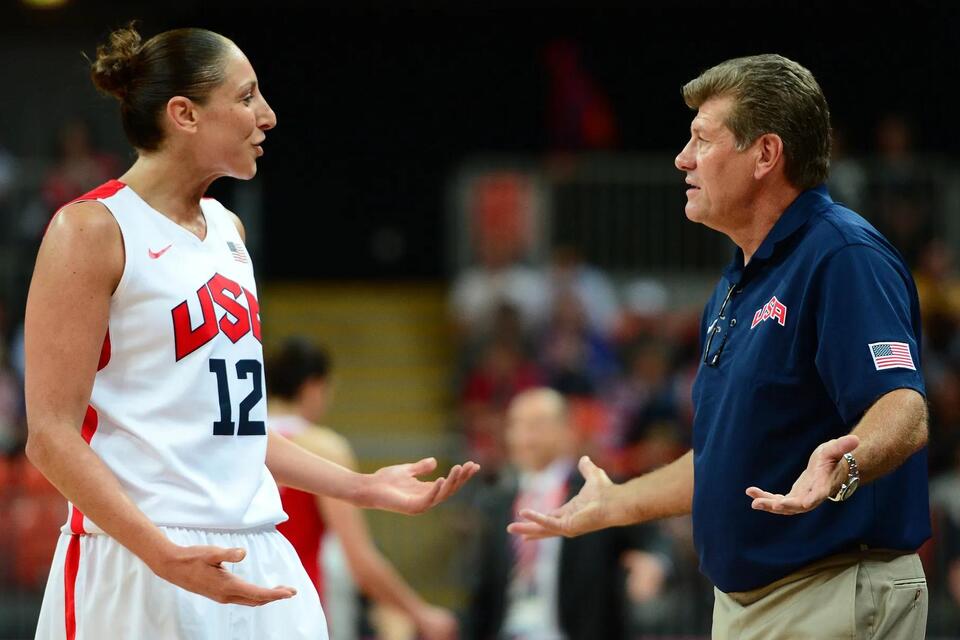The college basketball scene has shifted dramatically in recent years, with the arrival of name, image, and likeness (NIL) and the transfer portal standing out as the biggest changes.
Legendary UConn coach Geno Auriemma, often regarded as one of the sport’s all-time greats, said he believes certain stars from the pre-NIL era, such as Diana Taurasi, wouldn’t have had the same careers if they played in today’s game.
What Did Geno Auriemma Say About Diana Taurasi?
Auriemma said he doesn’t think Taurasi would have stayed all four years at UConn under the current rules. Speaking on the “Fudd Around and Find Out” podcast with Azzi Fudd, the Hall of Fame coach explained how modern college basketball would have changed everything.
Fudd asked Auriemma, “What would you say, out of the teams you’ve had, the dynasties you’ve had, which era would not survive the NIL era that we have now?”
Auriemma replied, “I think Diana would have probably played at four schools in four years. I think she would have gone to the highest bidder every year.”
During her four-year stay at UConn from 2000 to 2004, Taurasi won three straight national titles, compiled a 139-8 record, and became the first Husky to record 2,000 points, 600 assists, and 600 rebounds.
But Auriemma wasn’t only pointing to Taurasi. He cited the entire core of those championship runs — Sue Bird, Svetlana Abrosimova, Shea Ralph, Tamika Williams, Asia Jones, and Swin Cash.
“When you think about D, Sue, Sveta, Shea, Tamika, Asia, Swin, you know, you’ve got four Olympians on the team,” Auriemma explained. “Like, I don’t know the last time I coached four Olympians on the same team. Actually, five, cause Svetlana was on the Russian Olympic team twice.”
Auriemma admitted UConn couldn’t compete financially for players of that caliber in the NIL market.
“We would not have been able to afford that,” he said. “If they were looking for the kind of money that they deserved, there’s no way that we would have been able to do that. No way.”
To illustrate, Auriemma compared the NIL market to overpriced coffee. “Some of the money that kids are being paid today, it’s like paying a hundred dollars for a cup of coffee. It’s really not worth a hundred dollars, but these guys are, you know, so yeah, that group of players… expensive, very expensive.”
The talent on those rosters was undeniable. Taurasi won back-to-back Naismith Player of the Year awards in 2003 and 2004. Bird became a WNBA legend and a five-time Olympic gold medalist. Several others went on to earn WNBA All-Star nods and represent their countries in the Olympics.
The dominance showed in the numbers: UConn’s three consecutive titles from 2002 to 2004 came with a combined 107-5 record, highlighted by a perfect 39-0 season in 2002.
However, Auriemma said replicating that today would be nearly impossible. With NIL deals and the transfer portal, players now have the freedom to earn immediately and switch schools for better opportunities.
Auriemma’s comments suggest dynasties like that UConn run can’t exist under today’s system, since those teams relied on stars staying four years at one program — something today’s incentives simply don’t reward.
